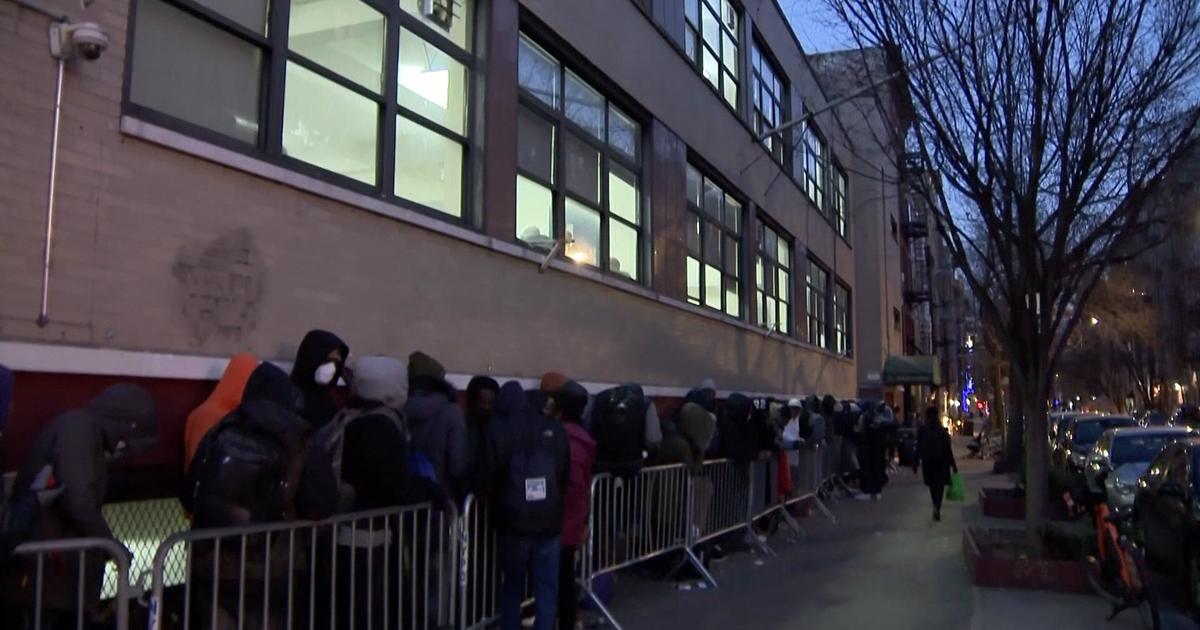Killer Tide: Collateral Damage Crime Wave
NEW YORK (WCBS 880) -- It didn't come as much of a surprise earlier this month when 30-year-old Shane Cashmore, surrounded by news microphones, blurted out the reason he allegedly robbed 18 ice cream shops and sandwich stores in Nassau and Suffolk counties.
"I'm a heroin addict," he said. "I'm sorry."
Cashmore is accused of terrorizing hourly employees behind the counters with a machete or a knife and instilling fear in several neighborhoods for five months.
"We're seeing now the collateral damage with an epidemic that's gone unchecked, and that now simply visiting a store can put your life at risk," Dr. Jeffrey Reynolds, an addiction specialist on Long Island, tells WCBS 880's Marla Diamond.
Reynolds is also the president of the Family and Children's Association.
"It really speaks to, not only the law enforcement piece, but making sure that folks who are using that much heroin and are that heavily addicted are getting the help that they need," he says.
Addicts rarely commit violent crimes, but Suffolk County Police Commissioner Tim Sini says the opioid epidemic is fueling most of their burglaries and larcenies.
"A lot of larcenies out of cars. These are crimes of opportunity. It's typically people leaving their cars unlocked, and someone walking up and down the street who's looking to score some change to add that up to the five bucks that they need t0 score a bag of heroin," he says.
Learn More: Killer Tide. The Opioid Epidemic
Heroin is cheap, but a single oxycodone pill could be sold on the black market for as much as $30 -- an expensive habit.
"I was doing it every day and I was doing a lot of them, and my tolerance just kept building day after day after day," Allison Kernan says.
For Kernan, heroin became the solution.
"When you're doing drugs, you end up only having friends that are doing drugs. And the people that were hanging out were doing heroin, and one of them said, 'I don't know why you're spending $100-150 a day on pills when you can just spend $20-30 on heroin, and it's cheaper, and it's stronger and it's going to last longer," she says.
She could never return to taking the pills. They simply weren't strong enough.
Kernan ended up selling drugs for her live-in boyfriend. She was arrested and, despite her pleas for leniency, authorities showed little mercy.
"I'm selling to support my habit. I'm not some big time dealer. When you saw me, that's not how it was. They didn't care. The lawyer said, 'there's not much I can do," she says.
At the age of 22, Kernan was sentenced to 18 months in prison at the York Correctional Facility in Connecticut, where she received drug treatment and was able to turn her life around. She now helps other addicts get into treatment. But her story is atypical.
"You know the jails will say, 'we run 12-step programs, we do this, we do that,' but none of them are offering comprehensive treatment," Reynolds says.
Many prisons ban drugs that can lessen the effects of withdrawal, because they too can be abused. Reynolds says prisons become a revolving door.
"In a number of cases, dealers know to wait right outside these jails, because they know that when people come out, they're going to be sick from withdrawals, they're going to need to use substances," he says. "And if they don't need to, they're going to want to, because they haven't gotten any treatment."
Realizing that addiction is a disease, many police departments across the country are trying to help the addicted avoid jail all together. Sini says a street level diversion program shows promise.
"It would go essentially like this: The person would get a phone call or a knock at the door, and a professional -- someone who's trained in coaching people into treatment -- would essentially say, 'Look, your name came to me from the Suffolk County police department. Now, we don't share information with them, but they share information with us, and you're on their radar," he explains.
Reynolds thinks one reason this approach is gaining support is because of who is being arrested.
"The current crisis is all about middle class white folks, and you have a whole new conversation, because you have middle class parents that are saying, 'What do you mean you're going to put him away for six months on a low level drug offense? This is not OK," he says. "So you have a population that's whiter, more affluent, politically relevant, and suddenly the conversation has changed."
This gentler approach, however, is not supported but the Trump administration and U.S. Attorney General Jeff Sessions, who just last week called for a return of mandatory minimum sentences on the federal level.



